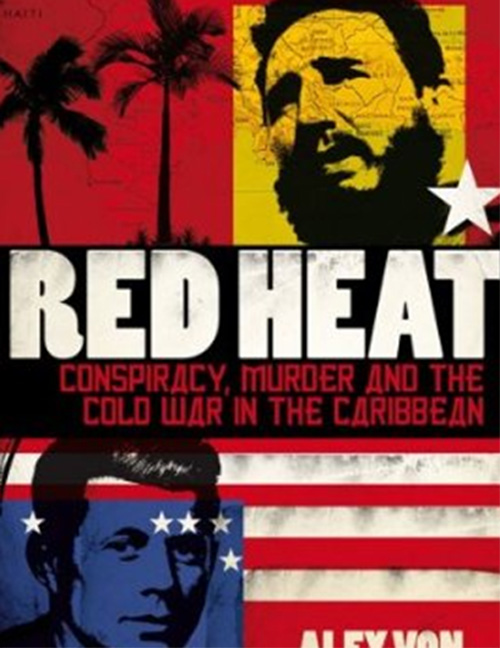Conspiracy, Murder and Terror in the Cold War
Review

Red Heat: Conspiracy, Murder and Terror in the Cold War Caribbean, Alex von Tunzelmann, Simon and Shuster, 2011, 505p, ISBN 978-1-84737-450-9, £25-00.
For those of us who remember the Cuban Missile Crisis and indeed who have vivid memories of the wider Cold War power politics of the 1950s and 1960s, Alex von Tunzelmann provides extensive analysis and insight.
Of course this book is not just about the overthrow of the Batista regime in Cuba but also about the demise of the Trujillo regime in the Dominican Republic and the survival of the regime of Francois ‘Baby Doc' Duvalier in Haiti, with his dangerous Tontons Macoutes supporters and his Voodoo practices.
One important feature of this work is the way that the character and personality of many of the major players is depicted. From the villainous and ruthless Trujillo through the corrupt and thoroughly cruel Duvalier to the counter-balanced relationship of the Castro brothers and Che Guevara, we can understand them as individuals in the context of their time. United States poiticians have much the same treatment: we see John F. Kennedy as more diffident in power than we might have imagined and we see Robert Kennedy evolve from ‘hawk' to the liberal whose memory and reputation is still revered today.
The principal revelation, for me, is that Fidel Castro basically emerged as a national freedom fighter, with his brother Raul Castro being the one aligned with communism, and that it was the failure of the United States to reach a respectful relationship with the new regime in Cuba that led to Fidel Castro's alignment with the Soviet Union. Beyond this, however, it emerges that, whilst Khruschev did wilfully move missiles into Cuba in 1962 as part of wider Cold War manoeuvring, it was the fact that Fidel Castro became so bellicose, partly because of the attempted ‘Bay of Pigs' invasion in 1961, as to demonstrate a desire to engage in conflict with the United States and risk inevitable annihilation which led Khrushchev to withdraw the missiles, rather than John F. Kennedy's militant response. Castro was deflated by the withdrawal of the Soviet missiles and the story of the next half century has been continued regret that an atmosphere of co-existence could not be established with the United States.
However the detailed examination of how various United States government departments and agencies, such as the CIA, along with various legitimate and less than legitimate American business interests were involved within the three small Caribbean states of Cuba, Haiti and the Dominican Republic reveals much that then explains the sometimes seemingly illogical twists and turns of American foreign policy in this era. Having read this extraordinarily interesting research, I do wonder what an equivalent historian will report in fifty years time about American involvement in the Middle East and North Africa. This present book reveals that there is so much more behind American foreign policy decisions than might readily be assumed and may be able to help us to have a wider perspective on what we are witnessing in the dramatic events of 2011.

